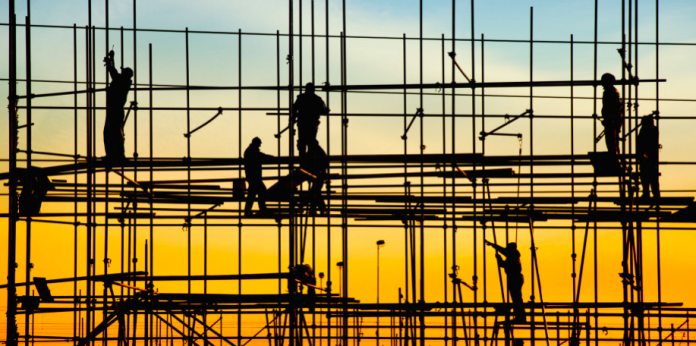How did the overwhelming wave of COVID-19 affect people in its early stages, and more specifically, young people and their mental health? We turned to science and searched for relevant studies, in order to have a more comprehensive and accurate view of the subject, and since Ireland, Greece, Italy and Spain are the countries that Cowork4YOUTH’s research focuses on, we drew material concerning them.
Starting with Italy, a research paper that studied mental health outcomes 14 months into the pandemic was published recently at the Journal of Affective Disorders[1]. The research was conducted through a web-based survey and comprised two parts: The first one between March-April of 2020 so that a baseline would be established and the second one between April and May of 2021 as a follow-up. The survey amassed answers from 5501 people in total, starting from 18 years old and up. In this article we focus on the results regarding young people, which were interesting and surprising to see. According to the results of the first part, “the main sociodemographic factors associated with mental health outcomes were female gender, younger age, living in Southern Italy, lower education, being a homemaker or being unemployed”. When the survey explored the correlation between age and resilience, the findings showed that younger individuals displayed lower levels of resources in resilience and that it is suggested that these kinds of resources were focused more on “[…] protecting older adults’ psychological well-being”. On another aspect, though, although younger people seemed to be more neglected than other age groups, “ […] lower age was also associated with the remission of general distress symptoms […]”. And according to the comprehensive results of this study, an “overall decrease of depressive, anxiety and stress-related symptoms […]” were noted, although the bigger pressure was put on females, younger people and people with lower education.
A preliminary study concerning COVID-19 and well-being policies in Ireland, focused on young people, was published late 2022 as a chapter of the volume “The Unequal Costs of Covid-19 on Well-being in Europe”[2]. The study concludes that for young people specifically, the pandemic seemed to have highlighted vulnerabilities in mental health and education, as students were stressed about their studies, and in a broader aspect, their access to the support systems of their schools. Regarding jobs, the study notes “[…] adverse effects on the employment situation of young adults (temporary lay-offs or loss of employment) and has delayed entry on the Irish labour market”.
In Greece, a study that examined the mental health status of young adults and especially students during the third week of quarantine in the country, which was not known when it was going to end, was published at the International Journal of Psychology[3]. The method used was snowball sampling and 1018 people participated, with an average age of 21.5. The results showed differences between males and females regarding the effects of the quarantine: Females showed to be more anxious, stressed and negatively affected by the situation, while those who knew someone that had gotten affected by the virus were significantly more worried. More interestingly, “[…] the mean scores and the levels of depression, anxiety and stress were very close to the ones reported in Italy […] and among University students in Spain”, the study showed. But, two positive factors were also identified, factors that contributed as protective of people’s psychological health: Daily routine and altruism.
In Spain, a survey that was conducted during the late stages of the state emergency (June and July of 2020) and received responses from 544 individuals regarding, among other questions, their mental and physical health, didn’t reveal any surprising results when compared to the ones we examined about Greece, Italy and Ireland[4]. Younger people, females, single and with lower education seemed to have experienced a greater impact of the pandemic. Females particularly showed higher levels of anxiety, depression and stress than male participants. Also, the types of the participants’ worries were various, with the most prevalent ones being their mental health, their future and support from and towards others.
Stay connected with us through our social media:
facebook, Twitter, LinkedIn: @Cowork4YOUTH, and visit our website https://www.cowork4youth.org/
[1] Rodolfo Rossi, Valentina Socci, Tommaso Benedetto Jannini, Giulia D’Aurizio, Sonia Mensi, Francesca Pacitti, Alessandro Rossi, Giorgio Di Lorenzo,
Changes in mental health outcomes in the general population 14 months into the COVID-19 pandemic in Italy, Journal of Affective Disorders, Volume 325, 2023, Pages 35-40, ISSN 0165-0327,
https://doi.org/10.1016/j.jad.2022.12.148
(https://www.sciencedirect.com/science/article/pii/S0165032722014732)
[2] Vanessa Boullet, Julien Guillaumond, Covid-19 and Well-Being Policies in Ireland. A Preliminary Study with a Focus on Young People, in Louise Dalingwater, Vanessa Boullet, Iside Costantini, Pauls Gibbs (ed), The Unequal Costs of Covid-19 on Well-being in Europe, Springer International Publishing, 2022, ISBN3031144244, 9783031144240
[3] Kornilaki, E.N. (2022), The psychological effect of COVID-19 quarantine on Greek young adults: Risk factors and the protective role of daily routine and altruism. Int J Psychol, 57: 33-42. https://doi.org/10.1002/ijop.12767
[4] Sánchez-Rodríguez E, Ferreira-Valente A, Pimenta F, Ciaramella A, Miró J. Mental, Physical and Socio-Economic Status of Adults Living in Spain during the Late Stages of the State of Emergency Caused by COVID-19. International Journal of Environmental Research and Public Health. 2022; 19(2):854. https://doi.org/10.3390/ijerph19020854


